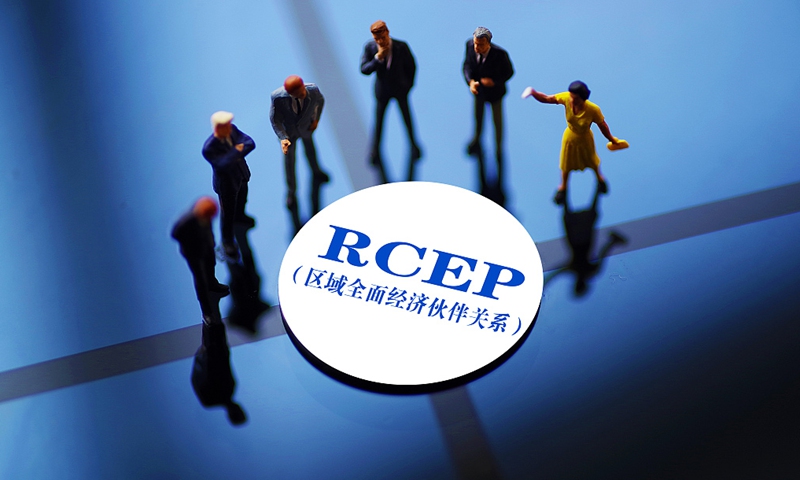RCEP deal to shore up China-Malaysia trade by creating a bigger market for all, Malaysian officials say
Source: Global Times Published: 2020/11/19 1:17:20

Photo: Xinhua
A lot of changes are expected following Sunday's signing of the world's largest free trade agreement Regional Comprehensive Economic Partnership (RCEP) including rising trade between China and Malaysia, and broader re-structuring of supply chains in Asian countries, government officials from China and Malaysia said during the Malaysia-China Business Forum held on Wednesday.
They also called RCEP an important milestone for "opening the doors a lot wider" and "growing the pie" for the member economies so that companies share a much larger market.
Fifteen economies, including China, Japan, Australia, South Korea and 10 ASEAN countries, signed the pact during a virtual ceremony on Sunday, forming the world's largest free trade zone. The deal doesn't include the US or India, which pulled out of the pact negotiations last year.
China and Malaysia's rising trade might take greater steps forward after signing of the deal, Li Chenggang, Assistant Minister, Ministry of Commerce, China (MOFCOM), said at the forum. He said China will support companies to increase importing products like palm oil and durians from Malaysia in the future. The government will also encourage companies from both sides to carry out trade cooperation in areas like high technologies and clean energy.
China's trade with Malaysia increased by 3.5 percent on a yearly basis to $104 billion in the first 10 months this year, data from the Chinese customs showed.
"That's not an easy growth to achieve given that we are facing this pandemic, but we managed to achieve it. The trend is definitely going to increase now that a RCEP is to open the door a lot wider on different varieties and categories that will benefit the businesses and economies involved," H.E.Hew Tse Hou, Consul General, Consulate General of Malaysia in Shanghai told the Global Times on Wednesday.
The target of the pact is to impose zero tariffs on 90 percent of the traded goods within the 10-year framework, but the task will be implemented with different pace, he said. "All countries have different economic structures and circumstances, so there's a timeframe for countries to do certain things."
But he said implementation of the deal will hopefully go smooth in Malaysia, as it is a shared belief in the country that Malaysia needs to continue to expand and work with more partners.
Steven Cheng, Consul with the Consulate General of Malaysia in Shanghai, told the Global Times that the pact will help create a bigger market, making movement of goods easier and lowering the cost.
"Before you have like two entities, China and the Association of Southeast Asian Nations. Now we are integrated into one market. So a company selling consumer goods can sell to about one third of the world's whole population," he said.
He also noted that the pact should help speed up changes in industrial division in Southeast Asia, so that China will divide some jobs with certain Southeast Asian countries and there will be less labor intensive manufacturing in Malaysia, Singapore and Thailand because of the RCEP's implementation.
Southeast Asian countries will assume different roles in making products. "For one product, maybe one part is from Thailand, one from Singapore, the final product is set in Malaysia and then shipped to China or the US," he said.
Hew Tse Hou also noted that Malaysia shares a similar view with China that the aim of RCEP is to expand the market for member economies, and Malaysia will have areas to grow with China and with other RCEP countries as well.
"It's not about some getting more and some less. It's about growing the pie so that everyone can benefit from it," he said, adding that it's not "fair" to define RCEP to be just about specific industries.
CEO of the MIDA Dato' Azman Mahmud also said at the forum that Malaysia welcomes investment from high technology, capital intensive and high value-added companies in China, especially in areas like automated machines and robotics, aerospace and new materials.
China recorded a total investment of about 3.5 billion yuan in manufacturing, services and primary sectors in Malaysia in the first six months of 2020, MIDA data showed.
Posted in: ECONOMY